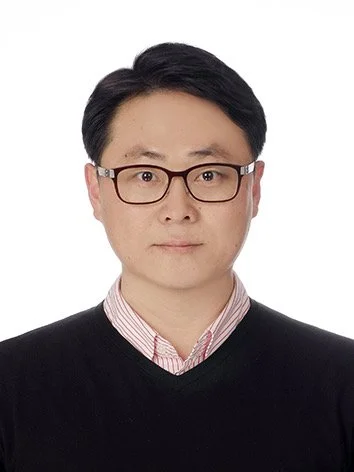
Events
February Event at Mt. Saint Joseph University
Thursday, February 20th
5:00 pm Networking
6:00 pm Dinner
7:00 pm Talk
Bio: Changseok Han, PhD is currently an Associate Professor in the Department of Environmental Engineering at the INHA University, South Korea. He earned his PhD in 2014 from the Environmental Science and Engineering Program at the University of Cincinnati. Dr. Dionysios D. Dionysiou supervised his PhD. Then, he worked at the USEPA from 2014 to 2018 as an ORISE postdoctoral research fellow. His research interests are i) Water treatment using advanced oxidation processes and environmental nanotechnologies, iii) Monitoring and treatment of micropollutants such as pesticides, pharmaceuticals, microplastics, and emerging contaminants in different waters, and iii) Resource recovery from wastewater.
Featuring Professor Changseok Han, PhD
Title: Micropollutant Treatment and Resource Recovery from Wastewater
1Program in Environmental and Polymer Engineering, Graduate School of INHA University, Incheon, Korea 22212
2Department of Environmental Engineering, INHA University, Incheon, Korea 22212
*Corresponding author: hanck@inha.ac.kr
Different valuable compounds such as pesticides and pharmaceutical and personal careproducts (PPCPs) have been widely synthesized to increase food production and controlhuman diseases for the advantage of human beings. As anthropogenic activities increase,their production also proportionally increases. As known, some of these artificiallysynthesized chemicals, known as micropollutants, are very persistent in the environment, and thus, they can chronically affect the health of humans and animals with very low concentrations. Different technologies are available in water and wastewater treatment facilities for their proper treatment. However, as reported, conventional water and wastewater treatment processes could not effectively degrade them; thus, it is important to develop reliable processes for their treatment.
In addition to micropollutants, wastewater contains different resources, such as ammonia, even though it is an important pollutant directly associated with the eutrophication of surface water bodies.
Advanced oxidation, employing highly reactive species (i.e., hydroxyl radicals, sulfate radicals, chlorine radicals, etc.), is a well-known technology to break down persistent contaminants in water and wastewater. UV/oxidants, catalysts/oxidants, or photocatalysis-based advanced oxidation processes (AOPs) have been extensively studied for treating recalcitrant contaminants in water. Electrodialysis (ED) is widely used to separate ammonia from wastewater and concentrate it for hydrogen production since the ED can effectively recover ammonia using ion exchange membranes in the presence of the electrical field.
This presentation will discuss micropollutants degradation by catalysts/oxidants- and UV/oxidants-based AOPs. In particular, as catalysts/oxidants-based AOPs, transition metal-modified iron oxides were newly synthesized and thoroughly characterized with XRD, XPS, SEM, TEM, zeta potential measurement, and a porosimetry analysis. The degradation of an over-the-counter painkiller, acetaminophen, was studied by the catalysts in the presence of peroxymonosulfate or peroxydisulfate. Moreover, as UV/oxidants-based AOPs, UV/chlorine was carefully studied to decompose a pesticide, carbaryl, in water. For ammonia recovery from wastewater, the ED operation was effectively investigated with different ion-exchanging membranes, gaskets, and spacers with various thicknesses. These results of micropollutant degradation by different AOPs and ammonia recovery by the ED will be provided and discussed in detail in this presentation.
Mount St. Joseph University
5701 Delhi road, Cincinnati, OH 45233
January Event at Cooper Creek
Thursday, January 30th
5:00-9:00 PM
Bio: Lisa Hall is a Professor at the Ohio State University. She joined OSU in 2012, having completed her Ph.D. with Kenneth Schweizer at the University of Illinois and a subsequent postdoctoral appointment with Amalie Frischknecht and Mark Stevens at Sandia National Laboratories. Her research group uses statistical mechanical theory and molecular dynamics simulations to study molecular behavior and properties of nanostructured polymeric materials. In 2021 she received the Owens Corning Early Career Award from the Materials Engineering & Sciences Division of the American Institute of Chemical Engineers.
Featuring Lisa Hall, PhD
Title: Structure-property relationships in polymeric materials from coarse-grained simulations
The synthetic ability to control polymer architecture, such as by grafting chains on nanoparticles at different densities, creating blocky polymer molecules, and including functional chemical groups attached in various ways to the polymer chains, provides a rich parameter space for creating specialty polymeric materials with gradients in local structural and mechanical properties. Coarse-grained molecular dynamics simulations, in which multiple atoms of the original chemical system are grouped into a single spherical bead along a bead-spring chain, are efficient enough to reach the long time and length scales of interest and can provide general guidance to understand structure-property relationships within the large design space. We analyze the molecular behavior in detail and connect polymer conformations to polymer relaxation, ion conductivity, and other dynamic properties. Two examples will be discussed in this talk. First, we consider ion transport within solid polymer electrolytes and show how this depends on how strongly the polymer solvates the ions. Second, we analyze entanglements, constraints in motion imposed on long chains by other chains due to their non-crossability that determine their long time relaxation, in thin films of polymer-grafted nanoparticles. We find that the number of interparticle entanglements per chain is related to mechanical toughness of the material.


